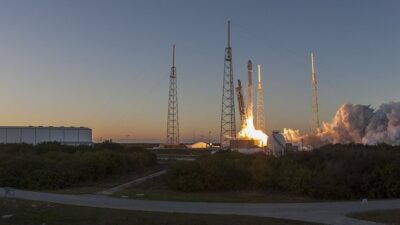In the rapidly evolving landscape of the automotive industry, few companies have made as profound an impact as Tesla, Inc. Founded in 2003, the electric vehicle (EV) manufacturer has not only redefined the perception of electric cars but also reshaped the entire automotive ecosystem. This article explores Tesla’s significant contributions to industry innovation, sustainability, and consumer behavior, driving a new paradigm in transportation.
Breaking the Mold: The Rise of Electric Vehicles
When Tesla burst onto the scene with the introduction of the Tesla Roadster in 2008, the automotive industry was largely dominated by traditional internal combustion engines. The Roadster established that electric vehicles were not just practical alternatives, but also thrilling, high-performance cars. Tesla’s emphasis on speed, design, and technology sparked interest in EVs, facilitating a shift from the conventional notion of electric vehicles as “slow and boring.”
Tesla’s flagship Model S, launched in 2012, further cemented its reputation, showcasing an impressive range, upscale features, and cutting-edge technology, such as Autopilot—a semi-autonomous driving system. This shift in public perception laid the groundwork for a significant rise in EV adoption, prompting legacy automakers to reconsider their product offerings and invest heavily in electric mobility.
Innovating the Supply Chain and Manufacturing Processes
Tesla’s impact extends beyond its electric vehicles to the very fabric of automotive manufacturing. The company has pioneered vertical integration by building its own battery production facilities, notably through the Gigafactory in Nevada. This strategic move has not only allowed Tesla to reduce costs and increase battery production capabilities but has also spurred the development of a more sustainable supply chain.
Furthermore, Tesla’s direct-to-consumer sales model has disrupted traditional dealership networks. By selling online and operating its own showrooms, Tesla has eliminated the middleman, providing consumers with a more streamlined and transparent purchasing experience. This shift has created ripples across the automotive industry, compelling competitors to explore new sales and distribution strategies.
Leading the Charge for Sustainability
Tesla has positioned sustainability at the forefront of its mission. By championing electric vehicles, the company has contributed to a significant reduction in greenhouse gas emissions associated with traditional gasoline and diesel vehicles. Tesla’s commitment to renewable energy is exemplified by its solar products and energy storage solutions, which strive to create a holistic ecosystem of sustainable energy consumption.
Moreover, Tesla’s focus on sustainability has influenced other automakers, leading to an increase in investments in clean technology and the development of their electric vehicle models. The rising standards for emissions and fuel economy, driven by regulatory pressures and consumer preferences, have prompted a shift in corporate strategies across the industry.
Shaping the Future of Autonomous Driving
Tesla has taken significant leaps in the realm of autonomous driving with its advanced driver-assistance systems. Through continual software updates and improvements—often delivered over-the-air—Tesla vehicles are equipped with features that allow for a level of autonomy that was previously unimaginable. While full autonomy remains a goal, Tesla’s incremental advancements have inspired debate and experimentation across the industry.
The influence of Tesla’s Autopilot system has pushed competitors to accelerate their research and development efforts in autonomous technology. Initiatives by other automakers and tech companies in the autonomous vehicle space are increasingly taking cues from Tesla’s innovative approach, underscoring the company’s role as a catalyst for change.
The Changing Consumer Landscape
Tesla has reshaped consumer expectations regarding technology, performance, and sustainability. Today’s drivers are more informed and engaged, demanding electric vehicles that offer high performance and cutting-edge technology features. Tesla’s direct communication with customers and transparency about issues, such as software bugs or quality concerns, has fostered a sense of community and loyalty that is rare in the automotive sector.
As Tesla sets the bar higher, traditional manufacturers are forced to respond to these evolving demands. The result is an industry-wide recognition of the importance of innovation, customer experience, and corporate responsibility—factors that were less emphasized prior to Tesla’s rise.
Conclusion: A Lasting Legacy
Tesla’s impact on the automotive industry is undeniable. Beyond being a pioneer in the electric vehicle market, the company has redefined how cars are manufactured, sold, and perceived. As the world shifts towards sustainability and technological advancement, Tesla’s innovations will likely continue to influence industry standards for years to come.
In this age of transformation, Tesla stands not just as a manufacturer, but as a driving force pushing the entire automotive industry towards a more sustainable and innovative future. The revolution on the road is only just beginning, and Tesla’s journey is one that will shape the way we perceive and experience transportation for generations to come.



